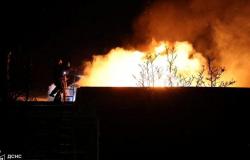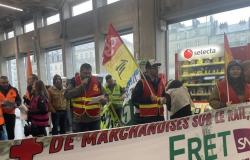The number of antisemitic incidents occurring worldwide is staggering and growing. With all the organizations across the globe working on the issue, all of the resources directed toward eradicating the scourge, all of the government initiatives put in place with great fanfare, and the increasing number of educational programs designed and redesigned to combat hatred of Jews, the attacks just keep mounting and there is little sense that at least for the foreseeable future things are going to get better for Jews around the world.
There is some comfort in knowing that the fight against antisemitism is ongoing despite the recent violent and disheartening setbacks, that there are innovative initiatives utilizing new technologies, and many young influencers on social media are gamely attempting to break through the existing echo chambers.
But I can’t seem to find the words to comfort my 94-year-old Holocaust survivor mother as another Kristallnacht anniversary approaches. An avid consumer of news, still with all her faculties intact, including the memories of being separated from her parents, sent to live in a convent and then boarding school under an assumed name, never to see her father again as he was murdered in the gas chambers of Auschwitz – she is disheartened in a way I have never experienced.
The US presidential election campaign has worsened her frame of mind. The Holocaust imagery invoked by the candidates and their proxies has been particularly jarring.
I try to explain that the summoning of Nazis and Hitler in this particularly ugly, contentious, and polarizing election arises from concerns about authoritarianism, nationalism, and the erosion of democratic norms; that politicians and commentators use these references to draw parallels between historical events and contemporary political movements or behaviors that they perceive as dangerous. And that using those terms and the history of the Holocaust is a strategy used to warn against the rise of extremism or to criticize opponents by framing them in a negative historical context.
But those explanations do nothing to calm her. She is certain that America and the world are entering a dangerous era that she has never witnessed since she immigrated to New York and fell in love with a country in which she felt safe and protected. No more. The constant antisemitism and especially the ever-increasing calls to destroy Israel she is witnessing is creating real angst.
Kristallnacht
KRISTALLNACHT touched her family directly. Her grandparents, Rosa and Abraham Hacker, were immigrants to Germany from Kolomyia in Western Galicia. Together with other members of their local Jewish community, many of whom were related, they sought a more secure future for themselves and their children in northern German industrial cities in the early 1900s.
Rosa and Abraham settled in Dortmund. With much diligence and hard work, they succeeded, surely beyond their dreams. Abraham founded a factory that produced brushes for industrial and personal use. He bought two buildings in the center of the city that housed tenants. They raised a family of five German-educated children – Klara, Carl, Berta, Sara, and Dora, my grandmother – in luxurious surroundings.
Rosa and Abraham’s livelihoods unraveled, according to over 1,000 pages of documents scrupulously recorded by German authorities and retrieved by me from the state archives in Munster while living in Berlin as the wife of Israel’s ambassador to Germany. They were forced to sell their businesses and real estate mandated by the increasingly harsh regulations against Jews throughout Germany beginning in the early 1930s, culminating in the Nuremberg Laws.
On October 29, 1938, as part of the “Poland Aktion,” the first forced expulsion of Jews with Polish citizenship living in the German Reich, they were deported.
The then-elderly couple were driven out of Dortmund by armed German guards and interned in difficult conditions in Poland, close to the German border. Somehow able to return to their home, they found their apartment had been looted by local German militias and townsfolk during the Kristallnacht events in early November 1938. All their personal belongings were stolen or destroyed. They were left with nothing.
Rosa and Abraham were subsequently arrested and forced to live in inhumane conditions in the Dortmund ghetto with the other remaining Jews in town. Rosa died there in December 1941, at age 68, and is buried in the city’s Jewish cemetery. Abraham was deported from the ghetto to the Theresienstadt concentration camp in April 1943 and then transferred and murdered in Auschwitz. He was 76.
THE DESCENDANTS of my maternal great-grandparents now live primarily in the US, Israel, and Brazil. On this 86th anniversary of Kristallnacht, all of us across continents have been newly and harshly confronted with the rising specter of classic antisemitism and its new form, anti-Zionism.
To my mother, after all the discussions about current events, intellectual explanations, and reminders about how meaningful it is that today Israel exists, I can only say how sorry I am that she is witnessing such intense hatred against Jews again in her lifetime. I sadly agree with her constant refrain, “Nicht gut.” It’s not good.
The writer is the president of Kam Global Strategies, a Jerusalem-based public relations company. She is the daughter of two Holocaust survivors and worked for 17 years at the Anti-Defamation League.





